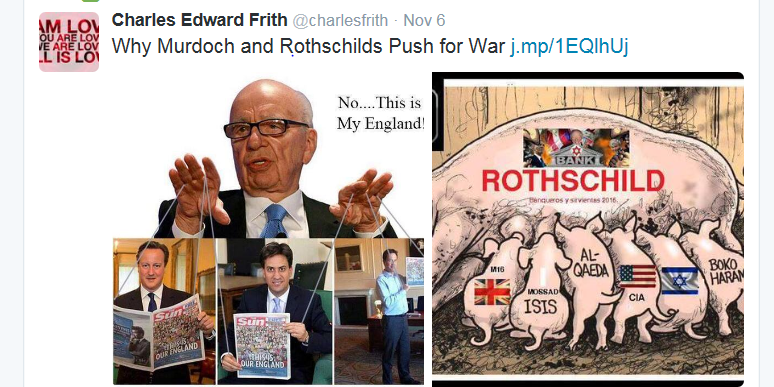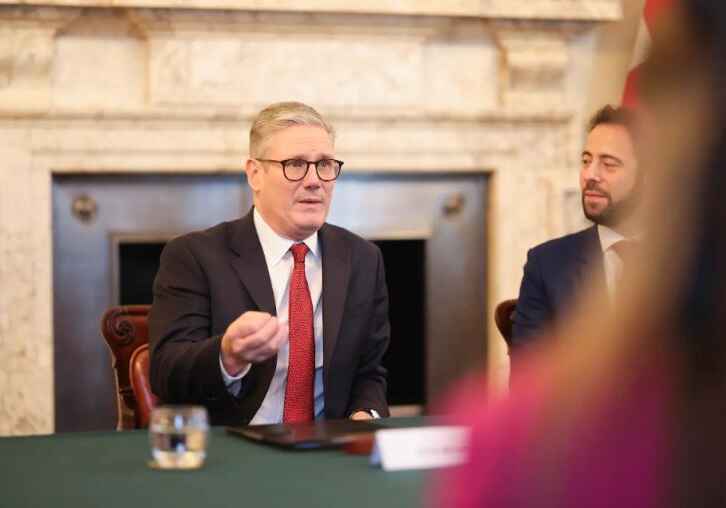CST Blog
Lessons in community relations
12 November 2015

Yesterday, CST Blog featured an article stating the need for politicians and their political parties to adequately apologise, in words and actions, for antisemitic behaviours on their watch.
The article was highly critical of Sir Gerald Kaufman MP and the Labour Party; and Sandra White MSP (Member of Scottish Parliament) and the Scottish National Party. CST welcomes the fact that White and her party leader First Minister Nicola Sturgeon MSP have now moved swiftly, and directly, to try and allay Jewish communal concerns. Regrettably, the situation concerning Kaufman remains unchanged. Both White and Sturgeon’s behaviour and communications show how things could have been done better: not perfectly, but certainly better.
The publication of yesterday’s Blog came shortly before Sandra White MSP and First Minister Sturgeon MSP issued separate, further, lengthier apologies, for the grotesque antisemitic cartoon that White had retweeted. The new apologies were not related to CST’s posting and were sent in letters directly to SCoJeC, the Scottish Council of Jewish Communities, a group with which CST has long worked.
The apologies are now public. (See SCoJeC here, the Glasgow Herald here, the letter of apology from Sandra White here and First Minister Sturgeon’s letter here.)
Sandra White’s letter describes the antisemitic cartoon as “repellent and offensive” and includes:
"…I had not intended to retweet this picture, and was horrified to learn that I had done so. As soon as this was brought to my attention, I deleted the tweet…There is nothing that happens in Israel or Palestine that can be justification for any racial or religious hatred. I truly believe that Scots of all backgrounds are welcoming and inclusive and this is something I have always been proud of…”.
Nicola Sturgeon’s letter explains that she has spoken directly to Sandra White and states:
“Regarding the original tweet itself, I find it and the image it contains abhorrent. As I stated at Giffnock [Synagogue], I will not tolerate anti-Semitism or religious or racial hatred of any kind at any level in our society.”
Both individuals have moved quickly to try and rectify the damage that has been done, writing in swift and direct response to SCoJeC as the representatives of Scottish Jewry. Ideally, both letters should have explicitly called the cartoon antisemitic, but they are not overly formulaic, and appear sincere and heartfelt, which is of paramount importance in such matters. Also of considerable importance is that SCoJeC (and CST) noted that White should have tweeted the apology, given that this was where the offence occurred. She has speedily done so.
This sorry episode may actually be of long term benefit to both Scottish Jews and the SNP. It has demonstrated antisemitism to a leading political party, that is clear in its opposition to antisemitism, but perhaps understandably does not grasp or recognise it as instinctively as Jews do. Furthermore, the First Minister, and one of the party’s most prominent pro-Palestinian voices, now know why Scottish Jews fear the potential for anti-Israel activism to lead to antisemitic ways of thinking.
Of course, the controversy will only benefit Scottish Jews and the SNP if both parties actually want a constructive and trusting relationship. The fact that both parties want (and largely have) this relationship is shown by the quick and effective communications between the SNP and SCoJeC.
This final lesson is reinforced by the conclusion of Nicola Sturgeon’s letter, from which others would do well to learn. This is it:
“I look forward to working further with you [SCoJeC] and further strengthening the links between the Scottish Government and the Jewish community in Scotland, which is and always will be an integral and highly valued part of Scottish society.”
This should be the response of all political parties, universities, trade unions, churches etc to Jewish concerns about antisemitism in pro-Palestinian spaces. It should be a willingness to learn from mistakes, a drawing closer to those who have been hurt and a recognition that British Jews fear antisemitism because they fear antisemitism: not because they are some kind of hostile political entity, seeking opportunistic points scoring on behalf of the Israeli government, or a mythical Global Zionism.
(For further views on this closing point, see David Hirsh at Fathom, here.)


